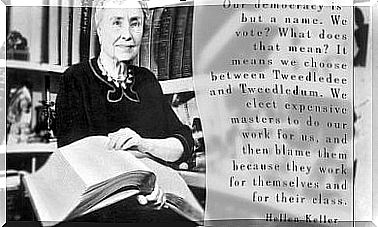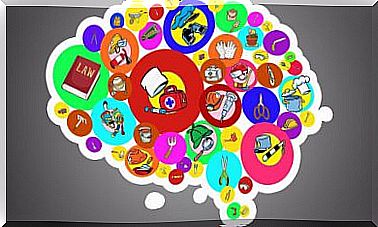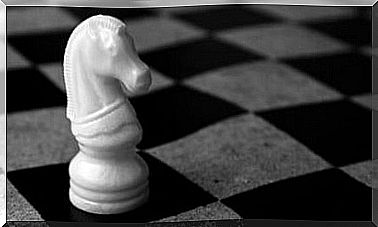Guilt, An Emotion Learned Since Childhood
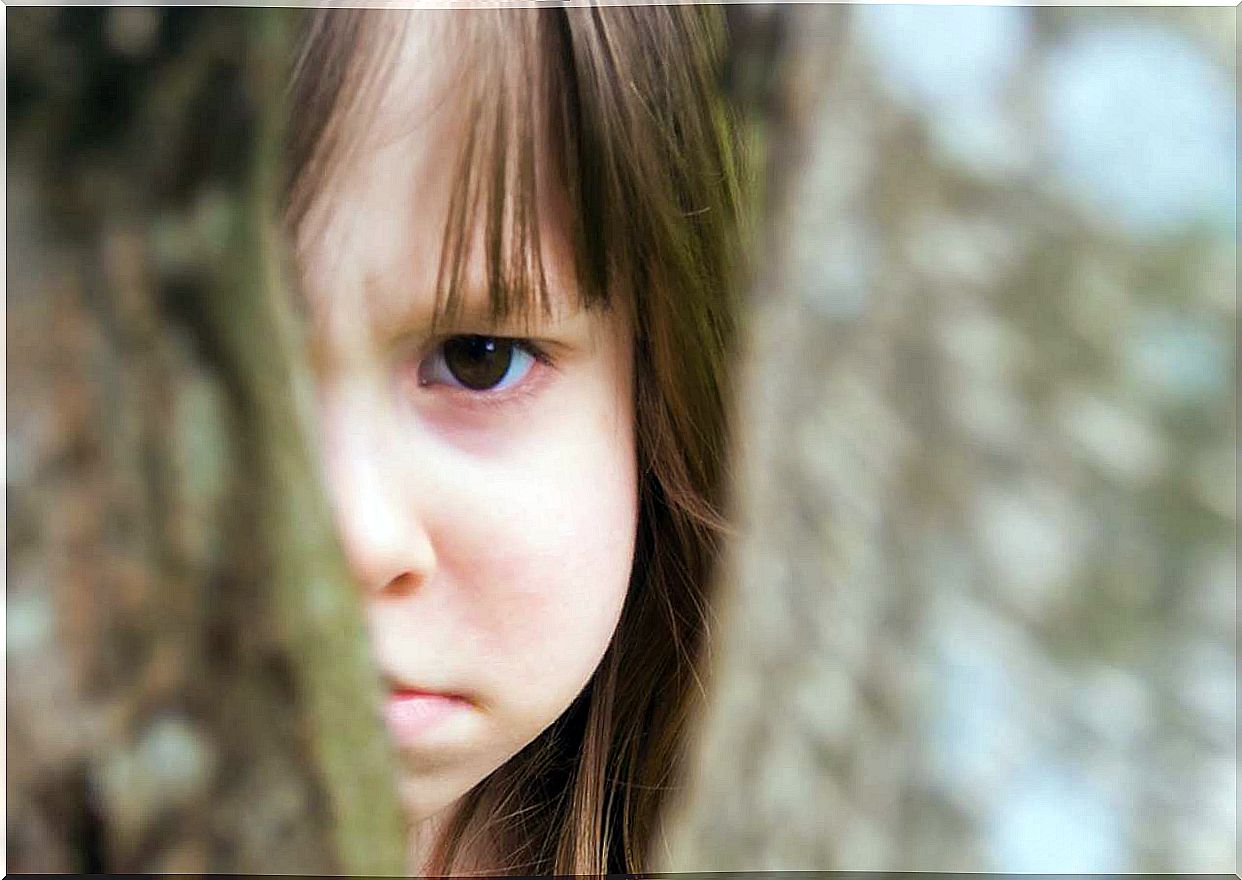
Guilt is a very powerful emotion. And very harmful. It also indicates that we are responsible for our actions. In this sense, we can become aware of what has happened and how we have acted. If we judge ourselves, we mark ourselves as guilty and we remain anchored in that emotion, without acting, it can drag us to the depths of the well, where emotional and physical discomfort awaits us.
We propose a reflection on what makes you feel guilty. Start by understanding what it’s like to feel guilty. For us, it would be healthier to analyze what you feel responsible for. Because if you start with the negative connotation that guilt introduces, other unhealthy emotions will probably also appear in the beginning, such as anger. From there, determine what is up to you and what is the responsibility of others.
How guilt arises
Guilt arises when you do something that you know is not right. An inner voice highlights it for you. You feel bad and that emotional state to which you rush will depend on what we have learned, that is, on the education we have had. The feelings that accompany guilt, such as shame, will also depend on what we have learned.
The situations that can generate guilt are many : we feel guilty for not being good parents, good children, good lovers, good friends … We torture ourselves for not having met the goals we set for ourselves, for gaining weight, for not reaching everything … guilty for what we do and for what we don’t do … guilty for being like this or thinking this, feeling that or wishing the other …

The beliefs we have, the education of our parents and our learning will determine in each situation how we feel. From children, the weight of guilt is acquired from the family and the school. Parents contribute to this feeling of guilt through something as simple as making the child believe that it is the cause of their discomfort and their emotions.
Guilt or responsibility
The important thing is to differentiate between useful guilt, separated from suffocating, sterile and pathological guilt, which is torture. The feelings of guilt that allow us to rectify the mistakes or mistakes that we may have made are useful.
Guilt is thus understood as responsibility. The other feelings of guilt are a burden that depletes our energy and generates useless and deep feelings of discomfort. Pathological guilt has nothing to do with healthy or responsible guilt, which sanctions a fault.
In line with this, Luis Rojas Marcos, a prestigious Andalusian psychiatrist based in the US, speaks of a positive attitude and not feeling guilty to improve chronic diseases.
Children raised in guilt or responsibility
Blaming children for trying to control them is a very dangerous strategy. A child brought up in guilt develops a particular sensitivity to that motion: it will be easier to manipulate and there will also be a greater probability that it will act as a manipulator.
Whenever parents attribute the cause of their moods to the child, they contribute to reinforcing his feeling of omnipotence by making him believe that he is responsible for his emotions. When emotions are unpleasant, the child directly feels guilty.
Instead, parents who help their children reflect on their faults in a constructive and non-accusatory or condemnatory way will be helping their children deal with their mistakes in another way.
After a behavior, children can reflect on what they have done and its consequences. At the same time, they can repair them and not get stuck in guilt. Remember that once you have pointed out the damage and motivated its repair, this feeling should go away.
How do you contribute to the feeling of guilt?
It is as easy to contribute to a child’s feeling of guilt as it is to make him believe that he is the cause of the adult’s emotional distress. Thus, parents who attribute to their children the cause of their moods, make them feel guilty for their anger or sadness.
Phrases like Luckily, your sister has not turned out like you … I am very sad because of you … With the money that school costs us, look at how you take advantage of it … We are ashamed that you behave like this … The message is totally wrong: the Children have to understand that each one is responsible for managing their emotions.
It is common for the feeling of conscious or unconscious guilt not to be managed well from childhood and can condition the entire life of the person, generating apprehensions, fears, self-recriminations, insecurities …
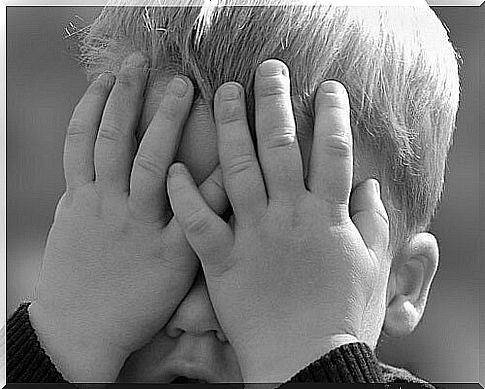
Learn to manage guilt
Guilt makes us anguish, torture and despise ourselves. The problem is not in feeling it, but in how to handle the guilt. To improve your management we suggest these simple steps:
1.- Examine if you are responsible for what happened
The key to intervention in pathological guilt is to delimit your part of responsibility with that of others. To get rid of it, it is necessary to know how to deal with responsibility. Under the effects of feelings of guilt, we assume responsibilities that do not correspond to us.
2.- Acknowledge guilt
The psychoanalyst Sigmund Freud said that you can only defeat the enemy in his presence. Embracing the feeling of guilt means assuming its presence and putting words to it. Thought and language come into play to recognize emotions.
3.- Express guilt
If we repress and hide the guilt, we will lock ourselves in solitude and silence, and in doubt. Words make it possible to break that isolation. Telling someone what makes us feel guilty and how we feel will help ease the feeling.

4.- Recognize your own limitations
Decreasing our level of demands and excess responsibilities for the affairs or suffering of others, helps to avoid feeling guilty for everything. Giving up control, accepting the existence of situations that escape us, and knowing that we cannot get to everything is very important.
5.- Eliminate self-reproaches
Self-reproaches are of very little use. On the contrary, they generate ailments of all kinds and states of anxiety that promote vicious circles of negative thoughts. Cycles that in turn feed the feeling of guilt.
6.- apologize
Reflect on your way of acting, and if you feel that you have done wrong or reluctantly, do not think about it any more. Look for alternatives to repair the damage, and if not, apologize to the person affected. It provides great relief and above all opens the windows to more positive emotions.
In summary, knowing what guilt is, how it works, and its implications allow us to more effectively manage this limiting state of being. Therefore, follow these keys that we offer you and free yourself from the pressure of guilt, understood as its pathological form.


